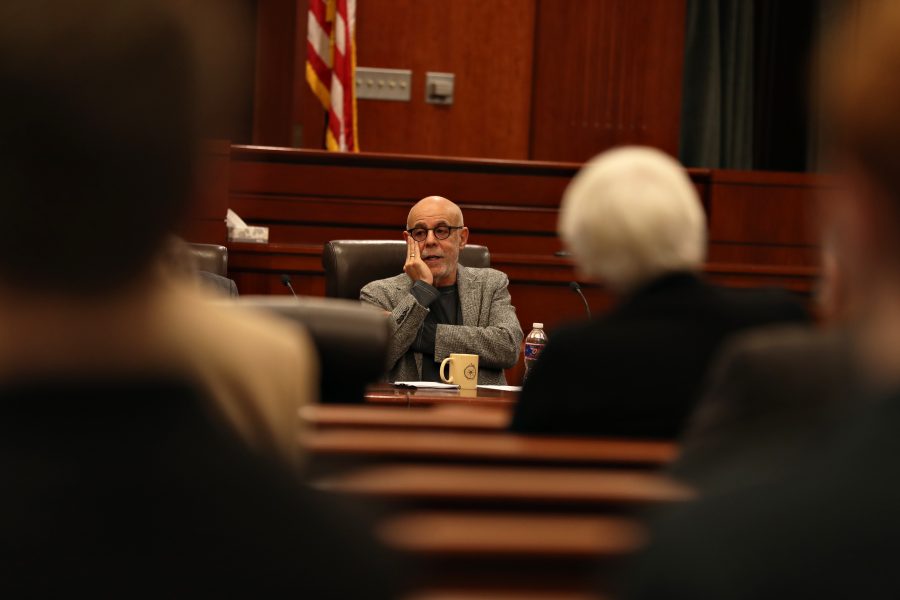UT and international scholars gathered last week at a three-day conference to discuss liberal democracy. The conference, held at UT’s School of Law, featured six sessions and covered a range of topics from the constitutional amendment process to the relaxation of constraints on executive power.
The first-ever “Future of Liberal Democracy” conference was co-organized by professors Richard Albert and Sanford Levinson. It featured over 30 panelists, including the Justice of the Colombian Constitutional Court.
“One part (of the conference) is certainly a kind of diagnosis of what’s happening, right?” said Albert. “It’s evaluative. The second part is, ‘Okay, given what’s happening … what should we do about it?’”
Levinson, a law and government professor, defined liberal democracy as a democracy where politics is about upholding citizen rights, clarifying that the term “liberal” is not related to the Democratic ideology.
“(A liberal democracy is) one that protects a broader array of rights, including civil liberties, freedom of press and speech and is … relatively committed to treating its citizens equally,” Levinson said.
According to Levinson, the idea for the conference stemmed from recent international political events, including President Trump’s election, Brazil’s election, Brexit and more.
“There is this concern literally all over the world that liberal democracies — constitutional democracies — are under threat, and … that really is the motivating force behind this (conference),” Levinson said.
Attendee Thomas Joseph Meredith said this perceived threat led him to attend the conference.
“I have a growing concern over the threat to the United States’ form of democracy and the freedoms that have ensured prior generations and my own generation,” Meredith said.
Levinson said issues in our democracy may be due to the Constitution itself and proposed another constitutional convention as a potential solution in Thursday’s keynote.
“It is necessary and proper to realize that success will require significant changes in our constitutional order,” Levinson said. “Otherwise, once again, lots of people will get their hopes up and will be utterly disillusioned when they come up against the realities of (the Constitution) that continues … to structure our political order.”
On Saturday, panelists discussed President Donald Trump and whether his administration reflects an American ideology or a global trend.
“I was really struck by the idea that … these policies … are really conservative policies but not really out of the norm,” attendee Lynn Meredith said. “What really has changed is the rhetoric, and the rhetoric is damaging to our normative behavior.”




















